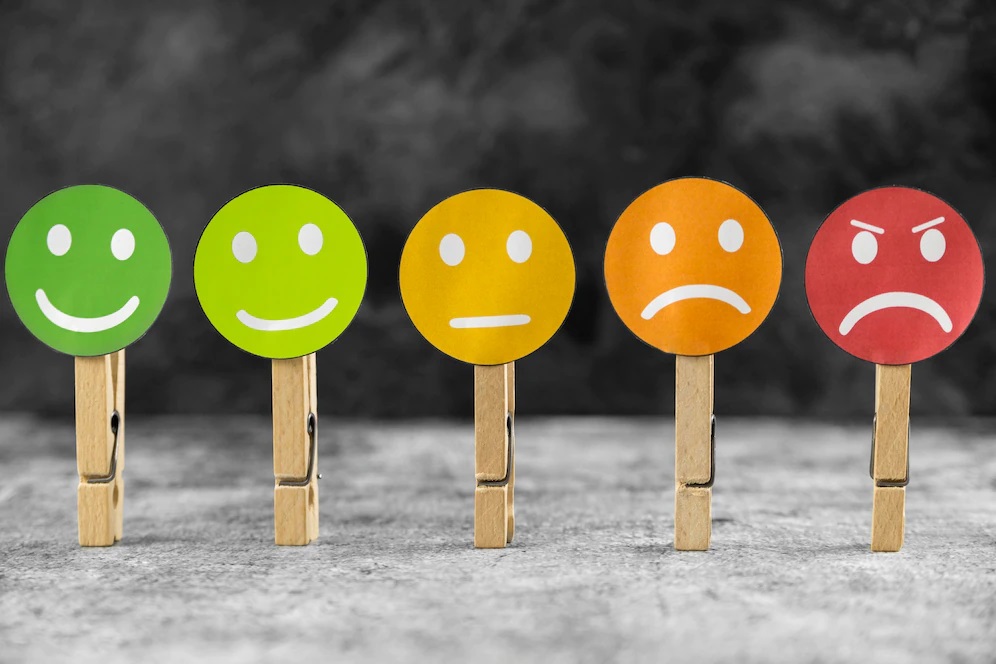Emotional regulation is very important as emotions are a natural part of human life. Every day, we experience a variety of emotions, from happiness when we take a surprise trip to anger when we arrive late for an occasion. Depending on the individual, these feelings can differ in intensity from severe to mild. Someone else may become angry over an event that hardly phases you, and vice versa.
Emotional regulation is required since this variety of emotions can often be difficult to predict and even harder to regulate. In the long term, emotional management will benefit your performance, relationships, and even your own welfare by assisting you in assessing these triggers and deciding whether or not to act on them.
What is Emotional Regulation?
Emotional regulation is the practice of controlling your emotional feeling and how you express these feelings. This refers to your conscious or unconscious actions that control your emotional reactions to events. This relates to both negative and positive feelings, but negative feelings usually place a greater emphasis on emotional regulation.
Several things impact the capability to control your emotions. Your upbringing, behavioural instruction, interpersonal ties, and self-relationships are all factors that can affect how well you control your emotions. While some people are more adept at it than others, emotional control is a skill that can be acquired and enhanced with the correct motivation.
Reasons for Emotional Dysregulation:
There are a number of reasons that leads to emotional dysregulation, including:
- Childhood trauma.
- Relationship with parents or guardians.
- Brain injury.
- Chronic invalidation of emotions.
How Do You Control Your Emotions?
Now you understand very well what exactly emotional regulation is, and you may be wondering to know that how you can use it. Thankfully, controlling one’s emotions is a learned behavior rather than a natural one.
This implies that you can continually improve it and work on it. Using a variety of emotional, controlling techniques and strategies, you will see that your capability to control your emotions will improve.
Top 4 Skills for Controlling Your Emotions:
1. Taking a Step Back
It’s natural to respond when emotions come on suddenly. Without pausing, you can move from being calm to being enraged in a matter of seconds. Therefore, the first and one of the most important emotional regulation skills is to remind yourself to pause and move back from the situation.
You can control your reactions and give yourself time to think by taking a moment to breathe and slow down before acting.
2. Self-Awareness
When it comes to controlling your feelings, the next skill to master is self-awareness. Recognize the breadth of feelings you could experience; for example, when you’re depressed, what do you feel – sadness, disappointment, or frustration?
Pay attention to how your body responds to different feelings. Your heart rate, the tension in your mind, and other physical sensations are all signs of how you are feeling. You can better understand these sensations and the reactions that follow by self-evaluating and being aware of these feelings.
3. Self-Compassion
A useful emotional control skill is self-compassion, which works in conjunction with self-awareness. You can better manage your negative emotions by being sympathetic to yourself, which enables you to view yourself more favorably.
4. Adaptability
Emotional control and adaptability go hand in hand when it comes to transformations, especially significant ones. Being able to develop flexibility is crucial since it increases your resistance to stressful situations. Try to think about these circumstances objectively; what advice would you provide to someone else in a similar circumstance?
Despite how resilient we are, emotions can sometimes be challenging and seem beyond our control. It is significantly more difficult to practice emotional regulation when you’re going through a difficult period. To get through it, you sometimes need a bit more support. When you are experiencing this, seeking professional assistance in the form of therapy or counseling will direct you in the right direction.
At Inner Acceptance Therapy, our professionals can help you control your negative emotions by providing you with the most effective therapy. With our therapy, you can learn to live in the present moment, develop skills to cope with stress, control negative feelings, and enhance interpersonal relationships. Get in touch with our therapists!

